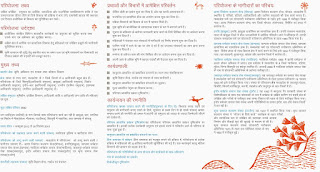Jeevika
Thursday, November 29, 2012
What is direct cash transfer scheme?
Wednesday, November 28, 2012
27 days of JEEVIKA 90000 of fund leverage 100 farmers benefited @JEEVIKA Umariya
Tuesday, November 27, 2012
JEEVIKA blog –India’s most read development project blog!
Monday, November 26, 2012
Innovative way of orienting JEEVIKA staff on SHGs@JEEVIKA Umariya
Sunday, November 25, 2012
Learning’s of JEEVIKA project team in 1st month of project implementation ( Oct 2012)
BIO FARMING: Govt. of Madhya Pradesh
Friday, November 23, 2012
JEEVIKA: Key highlights in October 2012
JEEVIKA in action :From field office
GENDER in jeevika: By Deepti ( Caritas India)
Tuesday, November 20, 2012
JEEVIKA blog...with feelings!
Monday, November 19, 2012
Sunday, November 18, 2012
JEEVIKA blog setting a new record of viewership!
Friday, November 16, 2012
Agriculture department come foreword to support JEEVIKA project !
Thursday, November 15, 2012
Empanelment Application form - National CSR Hub
jeevika project area
Development diaries-1
35 concerned panchayts has supported jeevika project
Wednesday, November 14, 2012
Process of developing JEEVIKA project
JEEVIKA
Tuesday, November 13, 2012
Now get more close to the JEEVIKA field with JEEVIKA online channel!
Monday, November 12, 2012
Culural Programme during JEEVIKA launching!
Sunday, November 11, 2012
Orientation Programme for JEEVIKA team & PRI members
Media Coverage of JEEVIKA launching





Saturday, November 10, 2012
JEEVIKA launching programme (6th Nov 2012)
Subscribe to:
Posts (Atom)


























